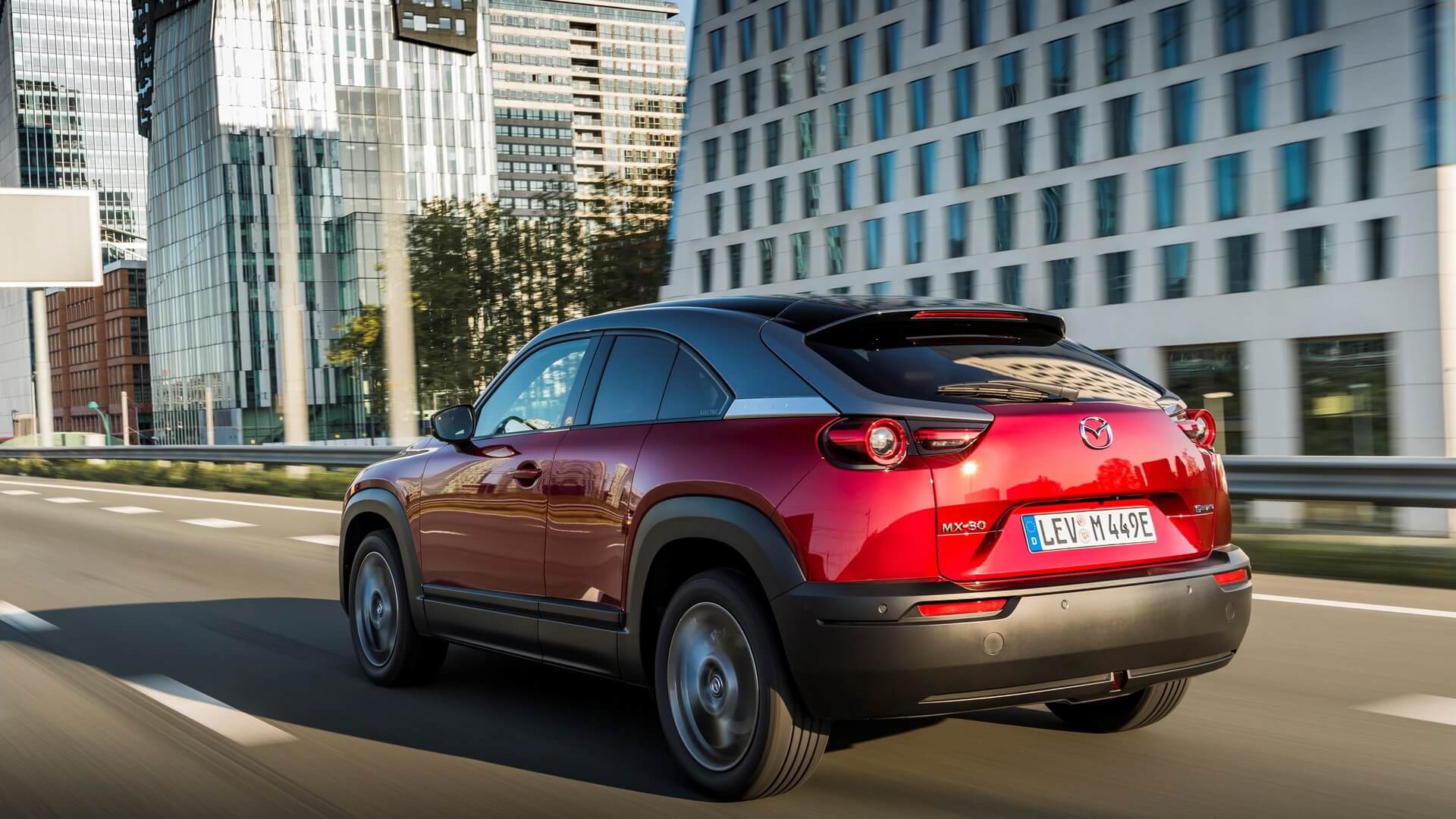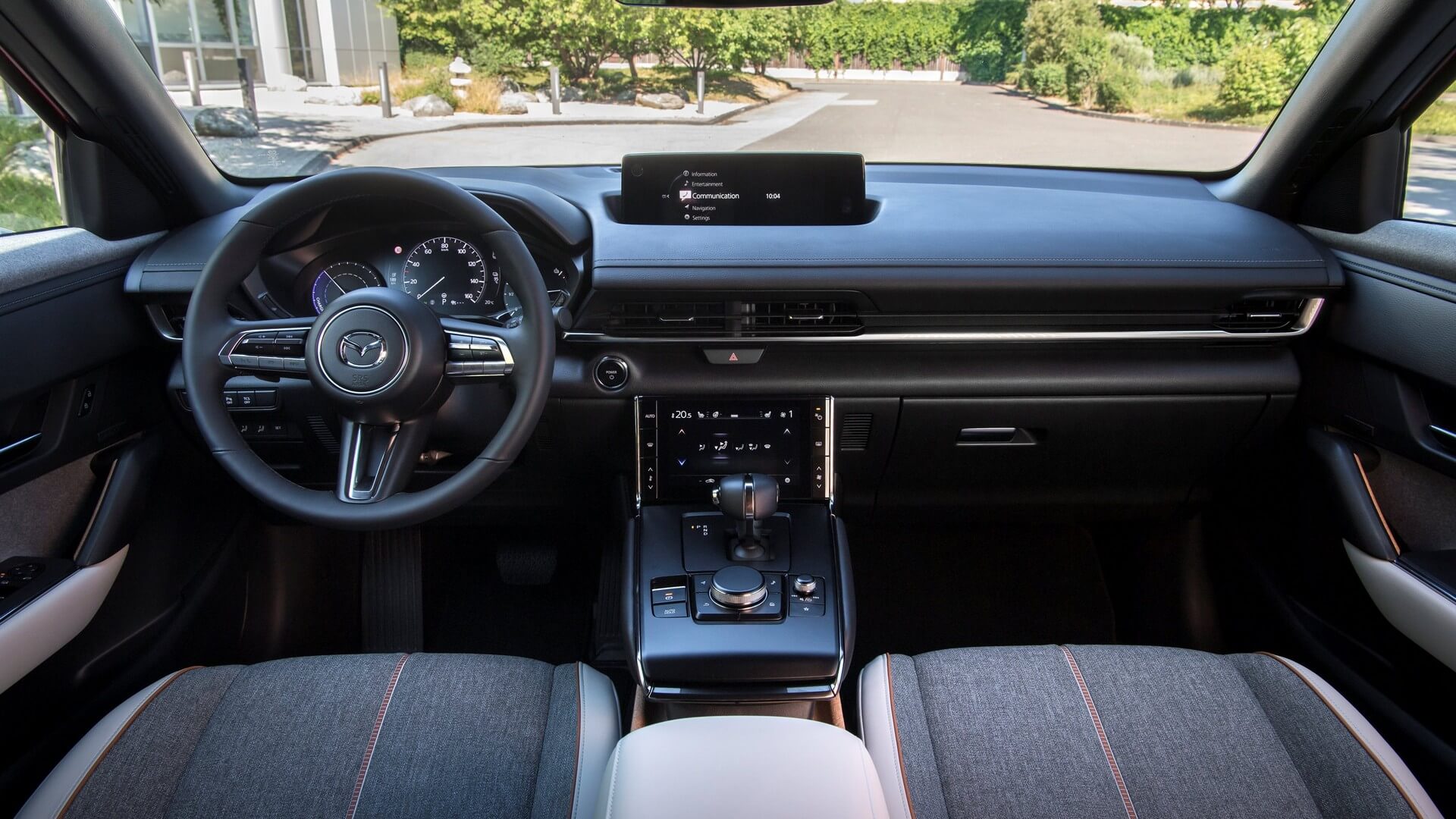The Mazda MX-30 has an official WLTP rating of just 124 miles (200 kilometers) and an even lower 100 miles (161 kilometers) according to the EPA for the model sold in the United States. While range anxiety is becoming less and less of an issue with new electric vehicles, it’s a huge issue for the zero-emissions crossover. Or is it?
You see, the Japanese automaker sees things quite differently. According to a statement made by Mazda Canada’s national manager for product and electrification strategy, Mark Peyman, the MX-30 is primarily a city-focused EV. Research conducted by the Zoom-Zoom brand showed the typical buyer already has a second vehicle to use for longer trips.

“We come to market with a vehicle like the MX-30 that has a smaller battery, a smaller footprint environmentally and still meets the range needs of 80 percent-plus of the consumers that will probably use this. We’ve found through research that many of these individuals have additional cars in their households that are for longer range.”
If you take extended trips out of the equation, then yes, the Mazda MX-30 becomes an appealing EV since it looks smart and is appealing to eco-conscious buyers due to its smaller carbon footprint thanks to the compact 35.5-kWh battery pack. Of course, not all of us can afford the luxury of owning two cars, and even if we do, there might not be enough space available to have both.

Mazda has plans to diversify the MX-30 by introducing a plug-in hybrid version with a range-extending rotary engine in 2022. It will be available in the United States and Canada later next year. It’s technically going to be the third version of the crossover since a hybrid model was launched in 2020 in select markets such as Japan and Australia with a naturally aspirated 2.0-liter gasoline engine. The mild-hybrid combustion engine works together with an electric motor to enable an all-wheel-drive setup whereas the standard model is stuck with FWD.
Source: Automotive News Canada
